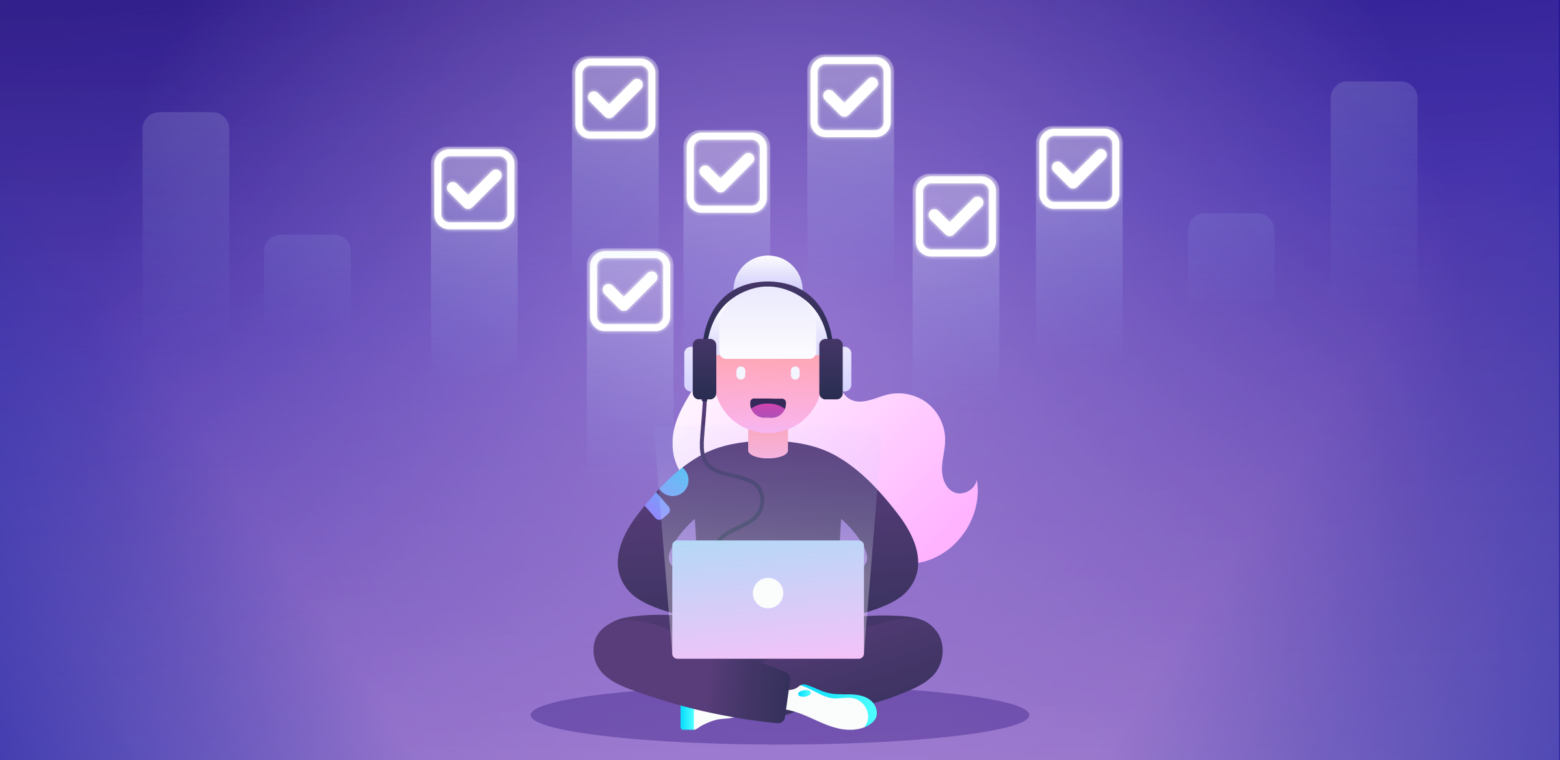If you ever come across a video with a lady pretending to do a haircut while gently whispering in your ear, it’s very likely you’ve stumbled upon ASMR.
Standing for “autonomous sensory meridian response,” AMSR is a phenomenon that is rapidly gaining momentum, reaching the Super Bowl and celebrities like Ellen Degeneres who tried her hand at ASMR on her show.
It might sound like an extremely weird concept, but millions upon millions of YouTube viewers find ASMR to help them relax, focus, and take a break from the hectic noise of everyday life.
As an avid ASMR listener myself, I always figured—there had to be something more to these whispering videos than just relaxation. Since your favorite music and even computer game soundtracks can improve your productivity, wouldn’t listening to ASMR videos have a similar effect?
So, for a whole month, I had my favorite ASMR artists brushing their mics in the background while I worked my way through daily tasks at work.

The result?
Just by listening to ASMR, I managed to boost my productivity noticeably, and my work efficiency (how well I did on the stuff I did do) went up by an astounding 22%.
That’s the equivalent of shaving over 1.5 hours off an 8-hour workday – or even adding a whole another day to your workweek!
The Effect Of Listening To ASMR At Work
Throughout the experiment, I listened to at least 4 hours of ASMR videos daily (half of the average 9-to-5 workday).
Some days, I went as high as 7 hours per day for full braingasmic impact. To measure the data, I used DeskTime time tracking software that ran in the background of whatever I was doing.
I noticed so many changes at once.
Besides an astounding improvement in efficiency and productivity levels, a significantly smaller portion of the day was spent on unproductive websites and apps. Even more, I managed to get more done in the afternoons—which are usually my least productive hours of the day.
And the best part? I was constantly feeling the soothing “tingles” of my ASMR sessions throughout my day and evening.
The results of my personal experiment do raise an unavoidable question: how can someone whispering softly or scratching a brush in your ear make you more productive?
What Is ASMR? The Science Behind Those Brain Tingles
For those who are not acquainted with the world of ASMR, the term “ASMR,” or autonomous sensory meridian response, was coined to describe the physical and emotional sensations people experience when they watch stimulating videos or participate in activities involving personal attention, like hair brushing or applying makeup.
The ASMR community is constantly growing—some 13 million ASMR videos have been posted on YouTube alone. On top of that, even big companies like Ikea have boarded this trend train and do ASMR videos as a part of their marketing strategy.
So, why are these seemingly innocuous videos effective at boosting productivity levels?
There’s a connection between ASMR and the white or ambient noise effect.
A 2012 study published in the Journal of Consumer Research reveals that moderate levels (up to 70 dB) of ambient noise can actually enhance performance in creative tasks for most people. Since ASMR videos are always low-to-moderate toned, it’s safe to assume that the brain perceives them as white noise.
Thus, instead of being a hindrance, ASMR videos become stimulating and help to get more work done.
Here is another explanation of why ASMR could affect productivity.
Researchers from the University of Sheffield and Manchester Metropolitan University revealed that ASMR may have benefits to both physical and mental health.
The study claims that those who experience ASMR had significantly reduced heart rates (an average decrease of 3.14 beats per minute) while watching ASMR videos compared to the people who did not watch ASMR videos. They also showed substantial increases in positive emotions including relaxation and feelings of social connection.
It’s not difficult to draw parallels here. Feelings of stress and anxiety can seriously decrease productivity at work. So the less stressed out you are, the more likely you’ll tackle your daily tasks with confidence and improved productivity.
I reached out to some of my favorite ASMR YouTubers, and here’s what they had to say.
Lucy of Creative Calm ASMR notes:
“In general with ASMR, the better the content makes you feel, the more likely you are to be more productive and happy in your everyday life.”
Bluewhisper, another successful ASMR artist, agrees and emphasizes that productivity and calm are not mutually exclusive.
“I think something calming can have a boosting effect on productivity because it will help the person relax and not worry about their task.
This is also the case if you’re on a tight deadline. Listening to something calming (like ASMR or classical music, for example) can only be beneficial to focusing on getting the task done in the best way possible, without worrying.”
ASMR At Work—Yay Or Nay?
While ASMR is not a fad to push people into, I have felt the impact of this intangible phenomenon for myself.
ASMR might be a powerful tool to help dedicated workers find their state of flow and tap into their inner productivity resources.
There isn’t much downside to giving it a try. If it doesn’t work for you, ASMR will be just another noise in your headphones. But if it does—you’re looking forward to many hours of productivity with a pleasant hint of a tingle.
Next: In The Flow: How To Master Your Brain’s Peak Productivity







































